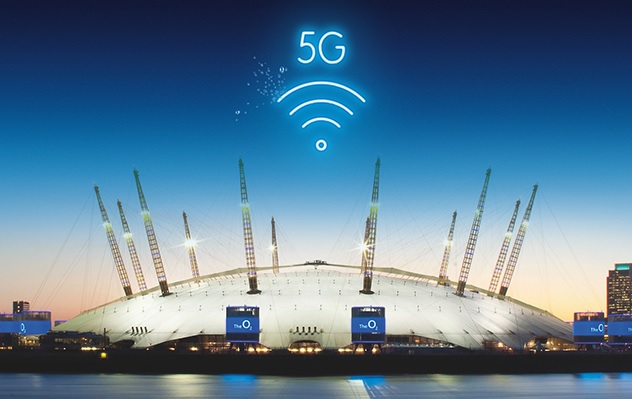London’s O2 arena was the venue for annual music industry shindig The Brit awards last night and Telefónica UK is hoping the arena hits the right note as a 5G testbed.
Working with Nokia, the operator will create a network consisting of various virtualised 5G functionalities at the venue.
The trial will use the arena to explore 5G technology through the now familiar applications such as virtual reality, augmented reality and live streaming. The demos will be available to both O2 customers and the general public.
O2 plans to use frequencies either in the 3.5GHz band, through a test licence from Ofcom, or 3.4GHz if it manages to acquire this during Ofcom’s auction next month.
The testbed will initially be available in selected parts of the complex, with the venue set to be fully covered with the technology by the end of 2020. Other unspecified venues across the UK will also get their own testbeds at later dates.
The project was launched at an event at the venue, where executives from the operator shed some light on their ambitions for 5G and took aim at the UK’s current regulatory regime.
Part of the rationale for investing in high-bandwidth 5G was illustrated by O2 UK COO Derek McManus, who highlighted that data traffic on O2’s network had grown 64 percent year-on-year in 2017.
But while CEO Mark Evans followed in the footsteps of fellow CEOs by talking up the high bandwidth and low latency of 5G, he declined to name a specific opportunity the operator was interested in. He said: “It’s too soon to say. That’s why we need trials. There are numerous opportunities but only if consumer demand is there.”
Evans’s response is pertinent considering that the CEO of his rival BT, Gavin Patterson, has notably commented on the lack of a business case. Nevertheless, BT is running its own testbed in Bristol to explore the potential of the technology.
What Evans and McManus did comment on was the importance of government support in ensuring that the next generation of mobile network was a success, a plea echoed today by the GSMA.
Asked by Mobile Europe what specific changes O2 wanted to see, McManus called for better planning regulation and more use of government property and infrastructure. He highlighted O2’s recent tie-up with the City of London as an example of how government assets could support small cells in offering connectivity.
Picking up on the theme, Evans highlighted how while mobile towers are only allowed to be 30 metres high, electricity pylons are allowed to be 48 metres due to their vital role in providing a key utility. He said: “I would say to you that connectivity is also a necessity in how we live our lives and run our businesses.”
The exec also highlighted the need for extensive fibre networks to backhaul mobile services, with Evans criticising incumbent and BT-owned Openreach for not coming up with a model to deliver adequate fibre to the country. He said: “Openreach has just announced it will roll out fibre to three million homes. If that’s our ambition we’re in trouble.”
He added, however, that he would be meeting the UK government alongside his opposite numbers from the other UK operators today (22 February) to discuss collaboration.
Evans refused to give any details on his strategy going into the upcoming auction of 2.4GHz and 3.4GHz bands, expected to take place at earliest next month, but there is no denying it will be a crucial one for the operator.
O2 missed out on 4G spectrum during the 2013 auction, which placed a bottleneck on its ability to support growing mobile services. This was part of the rationale for its proposed merger with Three, which was then blocked by the European Commission in 2016. Three, which also lacked spectrum, launched legal action against Ofcom last year over the auction’s cap, but it was thrown out by the UK’s High Court.
O2 notably did not join Three in launching a challenge, with Evans commenting that he was glad Three’s had been thrown out and that the auction would go ahead.
Whether O2’s new testbed at the music venue will succeed in proving the 5G business case and winning regulators over to its point of view is unclear, but for now the operator seems keen to start making some noise about the technology.



